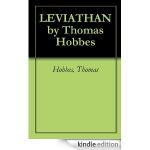|
This section contains 6,417 words (approx. 22 pages at 300 words per page) |

|
SOURCE: "Theory and Transformation: The Politics of Enlightment," in The Rhetoric of "Leviathan": Thomas Hobbes and the Politics of Cultural Transformation, Princeton University Press, 1986, pp. 114-33.
In the following excerpt, Johnston considers Hobbes's purpose in presenting the theological arguments in the second half of Leviathan.
Apart from the vigor and vividness of its language, the feature of Leviathan that distinguishes it most clearly from Hobbes's earlier political works is the great extent and detail of the attention it devotes to Scriptural exegesis and theological argumentation. In The Elements of Law, a work of twenty-nine chapters, Hobbes had devoted two chapters to a discussion of potential conflicts between religious and political authority. In De Cive he expanded this discussion considerably, creating a new division of four chapters on religious subjects, which he placed at the end of his book. Even with this expansion of their role, however, Scriptural and...
|
This section contains 6,417 words (approx. 22 pages at 300 words per page) |

|


